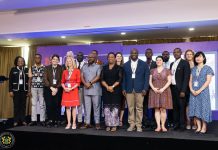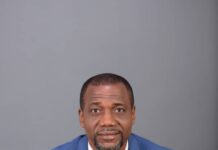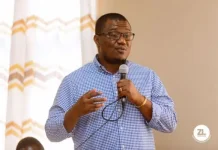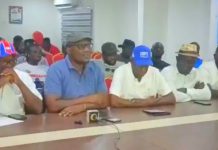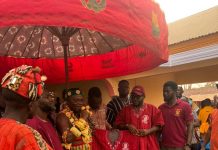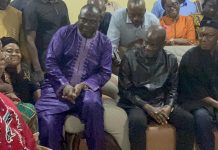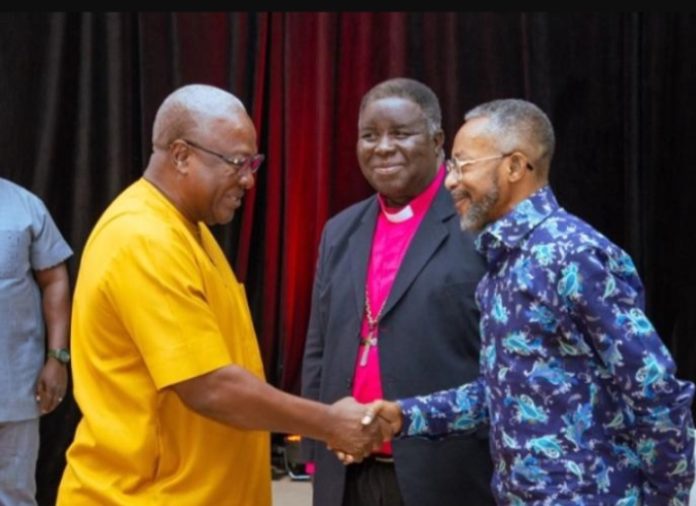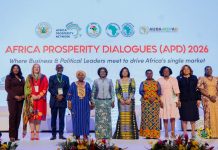Author: Peter Martey Agbeko || APR
As the dust settles on the just-ended general elections, one glaring subplot demands attention: the brazen activities of so-called prophets and self-proclaimed pollsters.
These groups seized the pre-election period as their stage, wielding “divine revelations” and “scientific forecasts” to shape public opinion. But how did their predictions fare against the hard reality of election results?
The Prophets Who Claimed to Know Tomorrow
In the run-up to the elections, pulpits and social media platforms were inundated with prophetic declarations.
Some boldly anointed “God’s chosen candidate,” claiming divine insight into the electoral outcome.
The narratives varied from visions of landslide victories to dire warnings of violence if certain candidates were not elected.
Many of these prophecies were couched in cryptic language, leaving room for post-election reinterpretation.
For instance, some prophets hedged their bets with vague statements like “the battle will be tough, but victory is certain,” ensuring they could claim accuracy regardless of the outcome.
When the results were announced, however, the mismatch between prophecy and reality was stark. Candidates touted as divinely ordained to win were left with crushing defeats, leaving their followers disillusioned.
The fallout has exposed the perils of blindly following religious figures who seek to blur the line between spirituality and political manipulation.
The Pollsters Who Miscalculated
Not to be outdone, pollsters also joined the fray, brandishing spreadsheets and surveys as tools of certainty.
Some polling agencies emerged as political cheerleaders rather than unbiased analysts.
Their projections, often lacking robust methodology, became campaign tools rather than instruments of public enlightenment.
In one glaring example, a high-profile pollster predicted a decisive victory for Candidate X, only for the election results to reveal a different winner altogether.
Critics have since questioned whether some pollsters were influenced by partisan agendas, monetary incentives, or sheer incompetence.
The Scorecard: Prophecies vs. Predictions
If this election were a test, many prophets and pollsters would receive failing grades. Out of the dozens of prophecies and predictions, only a handful came close to matching the final results. Most were wildly off the mark, further eroding public trust in these actors.
Some key observations include:
• Overconfidence: Many pollsters ignored regional dynamics and undecided voters, leading to skewed outcomes.
• Opportunism: Prophets exploited religious sentiment to gain prominence, with little regard for accountability.
• Partisanship: Both groups often aligned with specific political parties, compromising their objectivity.
Lessons for the Future
This election cycle underscores the urgent need for critical thinking and media literacy among the electorate. Blindly accepting prophecies or polls without questioning their credibility only leads to disappointment and confusion.
For pollsters, adherence to scientific rigor and transparency is non-negotiable. Polling is not about predicting outcomes but about providing snapshots of voter sentiment at specific points in time. Any deviation undermines the credibility of the entire profession.
For prophets, it is high time to separate faith from political theater. The exploitation of religion for political gain does a disservice to both faith and democracy. Religious leaders must focus on promoting peace, justice, and unity rather than meddling in electoral affairs.
Conclusion
The just-ended elections should serve as a wake-up call for citizens to demand accountability from both prophets and pollsters. The role of both groups in shaping public opinion cannot be underestimated, but neither should be allowed to operate without scrutiny.
As we move forward, let this election be remembered not just for its winners and losers but for exposing the folly of false prophets and dodgy pollsters.
In the end, the truth will always prevail over predictions, no matter how loud or convincing they may seem.

